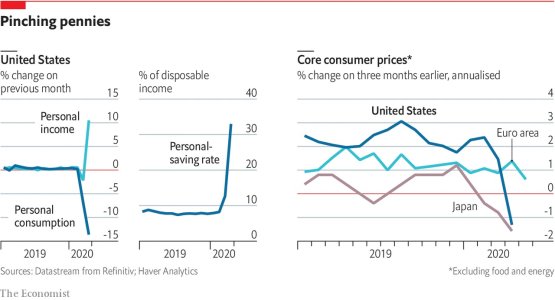The coronavirus pandemic is a "devastating blow" for the world economy, according to World Bank President David Malpass.
Mr Malpass warned that billions of people would have their livelihoods affected by the pandemic.
He said that the economic fallout could last for a decade.
In May, Mr Malpass warned that 60 million people could be pushed into "extreme poverty" by the effects of coronavirus.
The World Bank defines "extreme poverty" as living on less than $1.90 (£1.55) per person per day.
However, in an interview on Friday Mr Malpass said that more than 60 million people could find themselves with less than £1 per day to live on.
Mr Malpass told BBC Radio 4's The World This Weekend: "It [coronavirus] has been a devastating blow for the economy.
"The combination of the pandemic itself, and the shutdowns, has meant billions of people whose livelihoods have been disrupted. That's concerning.
"Both the direct consequences, meaning lost income, but also then the health consequences, the social consequences, are really harsh."
Mr Malpass warned it's been those who can least afford it who've suffered the most.
"We can see that with the stock market in the US being relatively high, and yet people in the poor countries being not only unemployed, but unable to get any work even in the informal sector. And that's going to have consequences for a decade."
The World Bank, along with its counterparts, has been providing support to the worst affected countries, but says much more is needed.
It is calling on commercial lenders such as banks and pension funds to offer debt relief to poor countries.
He would also like them to make the terms of their loans clearer, so other investors are more confident about putting money into those economies.
Targeted government support and measures to shore up the private sector are also vital to rebuild economies, the World Bank argues.
Investment and support would create jobs in areas like manufacturing, to replace those in the worst affected sectors, such as tourism, which may have been permanently lost.
'Tensions and inequality'
Mr Malpass admits the damage to global trade, and inclinations to bring supply chains closer to home or erect trade barriers, are a challenge.
"When trade is reduced, that creates its own set of tensions and inequality... I'm sure [the global economy] will be interconnected in the future, maybe less than it was pre-COVID."
But ultimately, Mr Malpass said the "catastrophe" could be overcome, and that people were "flexible, they're resilient" .
"I think it's possible to find paths, it's hard work for countries and governments to do that.
"But we can encourage that effort... I'm an optimist, over the long run, that human nature is strong, and innovation is real. The world is moving fast and connectivity... has never been higher. And so that gives hope for the future."
However, he admits the challenge is getting the right plans in place at the right time - and in the meantime, the pain could be considerable.
https://www.bbc.com/news/business-52939846









